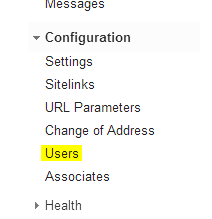
Businesses these days, whether they be online or otherwise, often tend to be backed up by a partnership of some sort, where more than one individual is running the show. In such situations, the distribution of tools and online resources can be a bit tricky. For example, imagine having to share your website's passwords, or Google Analytic property with your business partner(s). An immediate problem arises here, because you cannot trust anyone with a password. Luckily, Google makes it incredibly easy to share vital tools and resources between partners, such as Google Analytics properties, website verifications through Google Webmaster Tools, mutual-sharing of fan pages, and so on. Google has now introduced some latest features to go with its management of multiple users feature.
Verification details
Now, for every verified owner of your website, you can view the method by which that user was verified, so that you can keep track of who you add, and who got in by somehow tricking you. To access this information, log into your Webmaster Tools account, and click on your site. Now, from the Configurations menu, click on Users.

Now, you'll see a Manage Site Owners option at the top-right. This will take you to the verification information.

You will be able to see what owners are verified for your website, and what methods they have used. Click on the verification details next to each user to find out more.
Unverifying an owner
You can no longer un-verify a website owner if the method(s) they used for verification still exists. For example, if verification was done through meta tags, then Google Webmaster Tools will prompt you with an error, and won't let you un-verify an owner as long as that meta tag is still there.
CNAME verification
CNAME verification strings have now been shortened in order to support a larger number of DNS providers. Systems used by some providers restrict the number of characters that can be used for a DNS record, and as a result, many users couldn't use this method of verification. Now, with shortened strings, they will finally be able to do it. However, this won't change the existing strings, and the old ones will continue to work just fine.
Questions? Feel free to ask us. We'd love to respond to your queries. Peace and blessings :)










